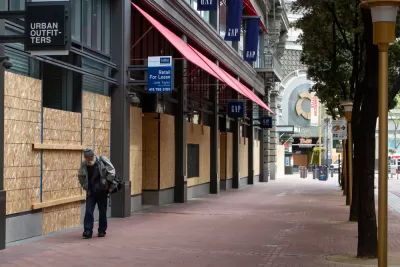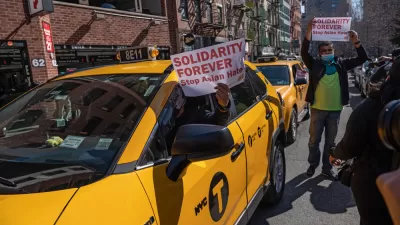Among unwelcome lessons of COVID-19 is growing evidence of what was already broken in politics and business. Ben Brown looks at making bold changes in order to improve the lives of the left out and left behind.

"This is the first of several posts planned for the next few weeks on lessons we’re learning from the pandemic and how local and regional governments might respond – not only to the crisis itself, but also to weaknesses in policies and processes COVID-19 exposed.
"Let’s start with an understatement: Community development leaders – whether they’re in government, non-profits, or the private sector — are likely to remember this time as the most challenging of their lives. Every hard choice is harder, every strategy fraught with uncertainty.
"At the moment, we’re upping the anxiety and the stakes for decision-making as governors in a majority of states bow to pressure to lift stay-at-home restrictions that were intended to slow the spread of COVID-19. Ahead is a series of uncoordinated experiments that will produce as-yet-unknown outcomes everywhere. Officials are betting lives and economies on assumptions that are at once wishful thinking and probably inevitable. We can’t expect people to hide in their homes forever.
"Response to the pandemic is a global challenge. But impacts are felt most quickly and most dramatically in local and regional jurisdictions where people live and work and where Americans tell pollsters they have the most faith in government. It’s also where the resources for responding to the crisis are most threatened."
Brown discusses the leaky pipes of both physical infrastructure and policy, and how doing the biggest little thing may help us deal with the uncomfortable realities and the barriers that must be overcome.
FULL STORY: After the Plague: Go Big or Go Backwards?

Planetizen Federal Action Tracker
A weekly monitor of how Trump’s orders and actions are impacting planners and planning in America.

Restaurant Patios Were a Pandemic Win — Why Were They so Hard to Keep?
Social distancing requirements and changes in travel patterns prompted cities to pilot new uses for street and sidewalk space. Then it got complicated.

Map: Where Senate Republicans Want to Sell Your Public Lands
For public land advocates, the Senate Republicans’ proposal to sell millions of acres of public land in the West is “the biggest fight of their careers.”

Maui's Vacation Rental Debate Turns Ugly
Verbal attacks, misinformation campaigns and fistfights plague a high-stakes debate to convert thousands of vacation rentals into long-term housing.

San Francisco Suspends Traffic Calming Amidst Record Deaths
Citing “a challenging fiscal landscape,” the city will cease the program on the heels of 42 traffic deaths, including 24 pedestrians.

California Homeless Arrests, Citations Spike After Ruling
An investigation reveals that anti-homeless actions increased up to 500% after Grants Pass v. Johnson — even in cities claiming no policy change.
Urban Design for Planners 1: Software Tools
This six-course series explores essential urban design concepts using open source software and equips planners with the tools they need to participate fully in the urban design process.
Planning for Universal Design
Learn the tools for implementing Universal Design in planning regulations.
Heyer Gruel & Associates PA
JM Goldson LLC
Custer County Colorado
City of Camden Redevelopment Agency
City of Astoria
Transportation Research & Education Center (TREC) at Portland State University
Camden Redevelopment Agency
City of Claremont
Municipality of Princeton (NJ)




























